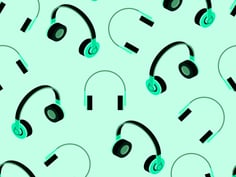 In this series of blog posts, we’ll explore how podcasts can help students improve their academic performance and prepare for successful careers. We all know effectively managing your time is a key component of performing well at work and in school, and podcasts are an excellent way to learn new things while you are exercising, walking to class, or on the bus. Podcasts obviously cover a wide range of topics. Apple’s “categories” of podcasts include: arts, business, comedy, education, games, government, health, kids and family, music, news and politics, religion, science and medicine, society and culture, sports, technology, and TV/film.
In this series of blog posts, we’ll explore how podcasts can help students improve their academic performance and prepare for successful careers. We all know effectively managing your time is a key component of performing well at work and in school, and podcasts are an excellent way to learn new things while you are exercising, walking to class, or on the bus. Podcasts obviously cover a wide range of topics. Apple’s “categories” of podcasts include: arts, business, comedy, education, games, government, health, kids and family, music, news and politics, religion, science and medicine, society and culture, sports, technology, and TV/film.
Improving Academic PerfORMANCE
Learn how to improve yourself through targeted learning and improved study skills.
Posts by Mark Skoskiewicz:
How to Extract Maximum Value from Your College Major
 Despite the sneers of those around you, you went to college to study film history. Or, maybe you got a degree in literature or Urdu. While it’s good that you followed your passion, after graduation, it might seem that your parents and friends had a point. You’re having a tough time getting a job (or perhaps you are still choosing a college major, and this is a fear you have). In fact, there is too much worry and generalizing when it comes to choosing a major. If you think strategically, you can follow your passions and launch a successful career.
Despite the sneers of those around you, you went to college to study film history. Or, maybe you got a degree in literature or Urdu. While it’s good that you followed your passion, after graduation, it might seem that your parents and friends had a point. You’re having a tough time getting a job (or perhaps you are still choosing a college major, and this is a fear you have). In fact, there is too much worry and generalizing when it comes to choosing a major. If you think strategically, you can follow your passions and launch a successful career.
What You Should Expect from a Private Tutor: 25 Rules (Part 3)
What You Should Expect from a Private Tutor: 25 Rules (Part 2)
In our last article in this series, we discussed that while it’s important to take ownership of your investment in private tutoring, you should still expect specific...
What You Should Expect from a Private Tutor: 25 Rules (Part 1)
This is the first in a series of articles about what makes for an effective private tutoring experience. The series will be written such that we assume most of the...
Using the Science of Habits to Improve Performance in School: Part II
 In a previous article on the power of habits, we discussed how habits are a tool our brains use to be more efficient. Instead of consciously analyzing every situation, thinking about various courses of action, and then deciding what to do, we use habits to automatically do this or that to save time. In theory, this allows us to decide to use our brain power to focus on things that really matter and really do require conscious deliberation. This is sometimes a good and sometimes a bad thing. It’s good when the habit is brushing our teeth each morning and night, or looking both ways before we cross the street. It’s bad when we grab a few cookies without even thinking about it when we are bored, or react negatively to constructive feedback.
In a previous article on the power of habits, we discussed how habits are a tool our brains use to be more efficient. Instead of consciously analyzing every situation, thinking about various courses of action, and then deciding what to do, we use habits to automatically do this or that to save time. In theory, this allows us to decide to use our brain power to focus on things that really matter and really do require conscious deliberation. This is sometimes a good and sometimes a bad thing. It’s good when the habit is brushing our teeth each morning and night, or looking both ways before we cross the street. It’s bad when we grab a few cookies without even thinking about it when we are bored, or react negatively to constructive feedback.
